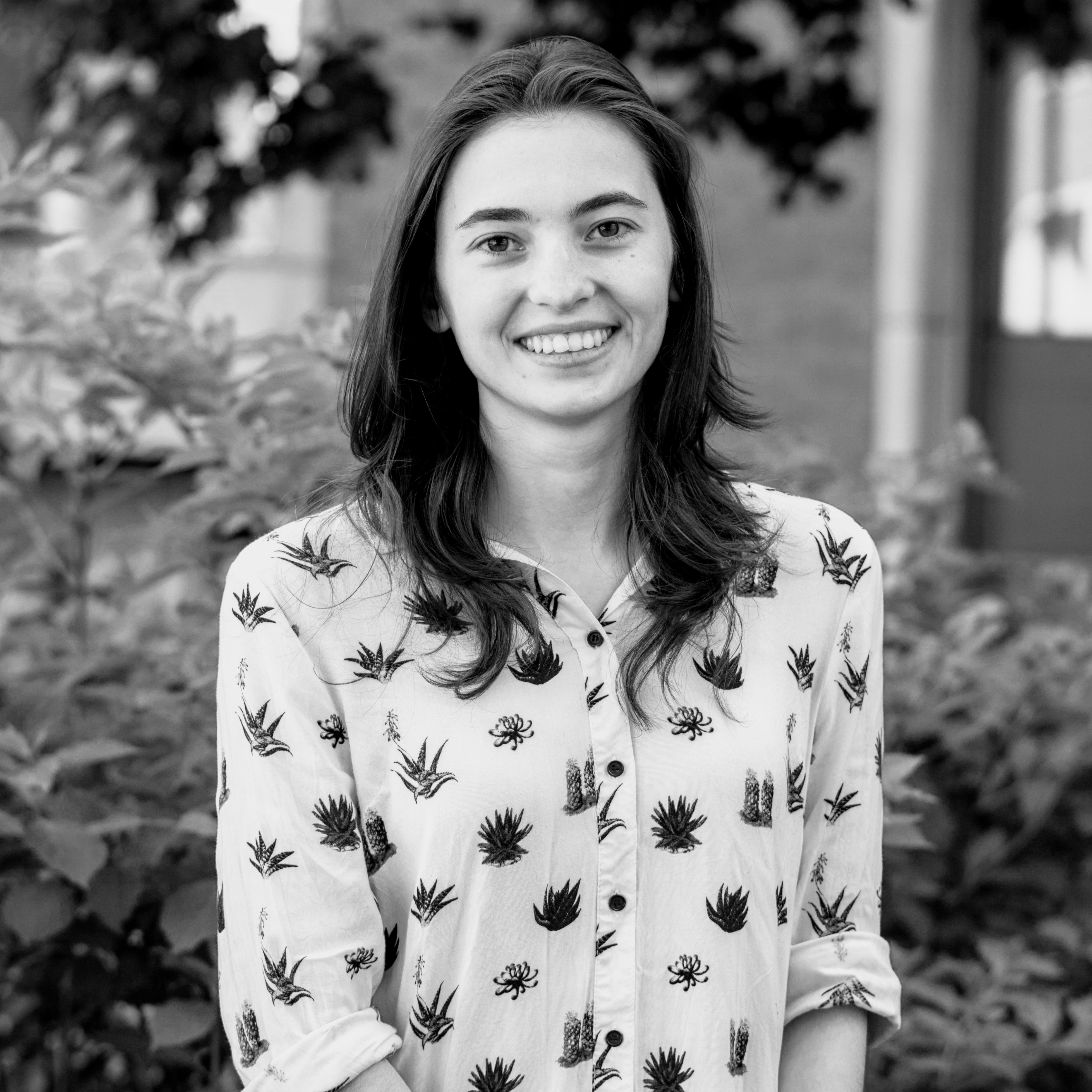Hi, I’m Cait
I am a graduate student at the University of Toronto supervised by Quaid Morris and Kieran Campbell, and a graduate researcher at the Vector Institute and Ontario Institute for Cancer Research. I use machine learning to understand cancer evolution.
I did my undergraduate studies at the University of Toronto, in Computational Biology and Statistics. I’m passionate about open science, and promoting great mentorship in the sciences.
I like to drink coffee and go hiking ☕ 🏔️ ☀️
As part of my ongoing commitment to supporting students at all levels and background in engaging with ML and computational biology, I make an effort to be available to provide mentorship, guidance, and resources.
I set aside ~2h/month for by-request 30 minute meetings, which you can book online, or reach out to me by email to arrange times outside of those listed.
Research
* Indicates equal contribution
Peer Reviewed Publications
Regional Mutational Signature Activities in Cancer Genomes
Caitlin Timmons, Quaid Morris, and Caitlin F. Harrigan
PLOS Computational Biology, 2022
Activating mTOR mutations are detrimental in nutrient-poor conditions
Agata A. Bielska, Caitlin F. Harrigan, Yeon Ju Kyung, Quaid Morris, Wilhelm Palm, and Craig B. Thompson
Cancer Research, 2022
Reconstructing evolutionary trajectories of mutation signature activities in cancer using TrackSig
Yulia Rubanova, Ruian Shi, Caitlin F. Harrigan, Roujia Li, Jeff Wintersinger, Nil Sahin, Amit Deshwar, and Quaid Morris
Nature Communications, 2020
Other Publications
Whole slide Imaging Mass Cytometry allows the rapid profiling of the immune landscape of histopathologically aggressive prostate tumors
Jennifer L. Gorman, Lydia Y. Liu, Jordan P. Hartig, Nikesh Parsotam, Amanda Khoo, Vladimir Ignatchenko, Sarah Asbury, Somi Afiuni, Ricardo Gonzalez, Michael J. Geuenich, Caitlin F. Harrigan, Yuju Lee, Jianan Chen, Liang Lim, Qanber Raza, Peggi M. Angel, Kieran Campbell, Stanley K. Liu, Michelle R. Downes, Richard R. Drake, Thomas Kislinger, David King, Hartland W. Jackson
AACR annual meeting proceedings, 2024
Bacterial ADP-heptose initiates a revival stem cell program in the intestinal epithelium
Shawn Goyal, Cynthia X. Guo, Adrienne Ranger, Derek K. Tsang, Ojas Singh, Caitlin F. Harrigan, Olga Zaslaver, Hannes L. Rost, Herbert Y. Gaisano, Scott A. Yuzwa, Nan Gao, Jeffrey L. Wrana, Dana J. Philpott, Scott D. Gray-Owen and Stephen E. Girardin
biorxiv, 2024
Considerations for Visualizing Uncertainty in Clinical Machine Learning Models
Caitlin F. Harrigan*, Gabriella Morgenshtern*, Anna Goldenberg, and Fanny Chevalier
Workshop paper at CHI 2021
Posters
SignaTree: Mapping the Evolution of Mutational Signatures on Tumour Phylogenies
ISMB 2024
Dirichlet allocation of mutations to model DDR in cancer
Toronto DNA Damage & Repair Symposium
Dirichlet Allocation of Mutations Captures the Action of DNA Damage and Misrepair Processes
Intelligent Systems for Molecular Biology
TrackSigFreq: subclonal reconstructions based on mutation signatures and allele frequencies
Machine Learning in Computational Biology
Talks
Academic Talks
Mutational Signatures for DNA Damage and Misrepair
BIRS: Mathematical Methods in Cancer Biology, Evolution and Therapy
Invited talk
DAMUTA: Dirichlet allocation of mutations as a function of both damage and DNA repair
Cold Spring Harbour Laboratory Meeting: Genome Informatics
Selected Talk
TrackSigFreq: subclonal reconstructions based on mutation signatures and allele frequencies
Pacific Symposium on Biocomputing
Selected Talk, Poster
Guest Lectures
Exploring & Explaining Data in the Wild
AI & Data Science Post-Graduate Program, Loyalist College
Invited by Prof. Peter Papadakos as an anual guest lecturer in 2023 & 2024
Data Collection & Analysis
PRISM research & mentorship program, University of Toronto
Invited by Prof. Sadia Sharmin
Environmental & Life Sciences Workshop Series
STEMHub Foundation
Invited workshop series
R for bioinformatics
Global Society for Genetics and Genome Biology
Invited workshop
Other Talks
Machine Learning for Cancer Genomics
Artificial Intelligence in Healthcare Society Case Competition, York University
Invited keynote
Finding the ‘I’ in science
ACM Canadian Celebration of Women in Computing
Selected Workshop
Undergraduate research opportunities: how to find them and make them work for you
UofT Bioinformatics and Computational Biology Student Union
Invited by the BCBSU
How to hack your degree
Computer Science Student Union, University of Toronto
Invited by the CSSU
Teaching
Research Mentorship
Kiki Zhang
Combined BS/MSE Student; Biomedical Engineering. Research internship via Computational Biology Student Program at MSKCC.
Topic: Mutational signatures in the context of branching evolution
Fedir Zhydok
BS Student; Computer Science. Course project in Artificial Intelligence in Medicine “global classroom” program at University of Toronto.
Topic: Identifying metastatic tumours from mutational signatures
Caitlin Timmons
BA Student; Statistical and Datasciences, Biology. Research internship via Computational Biology Student Program at MSKCC. Went on to a Research Technician position at Dana-Farber Cancer Institute.
Topic: Modelling spatial distribution of mutational signatures in cancer genomes.
Haritha Lakshmanan
Highschool Student. Independent study at MSKCC. Went on to a combined BA/MD at Brooklyn College.
Topic: Automatic discovery of mutations predictive of survival in breast cancer patients
Teaching Assistant Positions
JSC370: Data Science II
JSC270: Data Science I
STA313: Data Visualization
PRISM: Preparation for Research through Immersion, Skills, and Mentorship
JSC370: Data Science II
CSC197: Privacy in the Age of Big Data Collection
STA4273: Minimizing Expectations
CSC197: Privacy in the Age of Big Data Collection
JSC270: Data Science I
CSC373: Algorithm Design, Analysis & Complexity
Testimonials
“I was fortunate to work with Cait for almost a year and had a wonderful experience. She was patient, supportive, and skilled at explaining complicated concepts in biology and programming. As a mentor, she has a great sense of when to guide you through a problem and when to let you work through challenges on your own. She helped me grow as a researcher and writer and I’m grateful for everything I learned from her.”
“As a mentor, Caitlin has greatly enhanced my ability to conduct research. She also provided valuable resources and aimed to make sure that I understood the fundamental concepts behind all the research conducted by breaking down difficult principles into easily comprehensible statements and thoughts. Additionally, she helped me find any sources of error as the research progressed. I enjoyed researching under her guidance, and I had an overall positive experience.”
